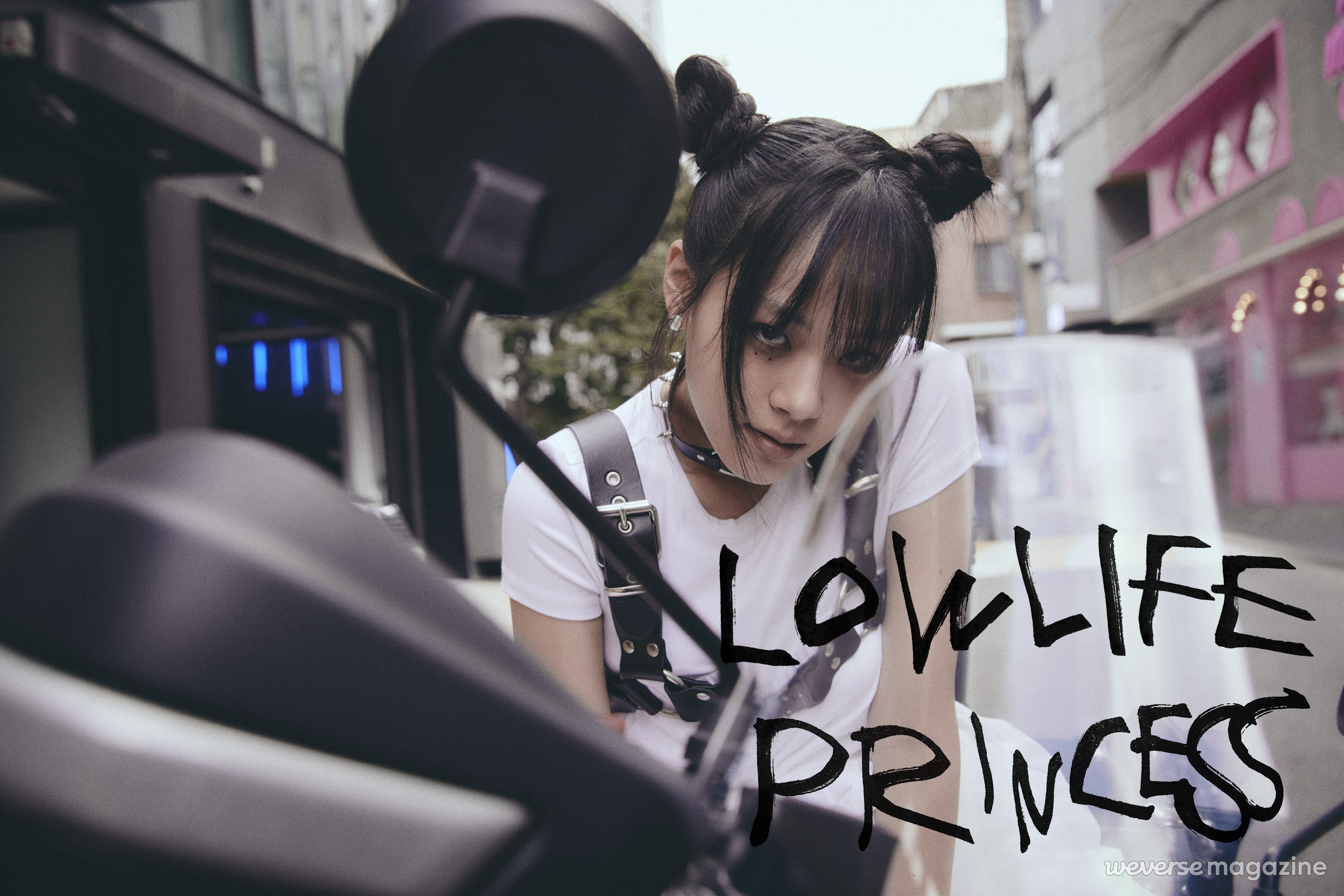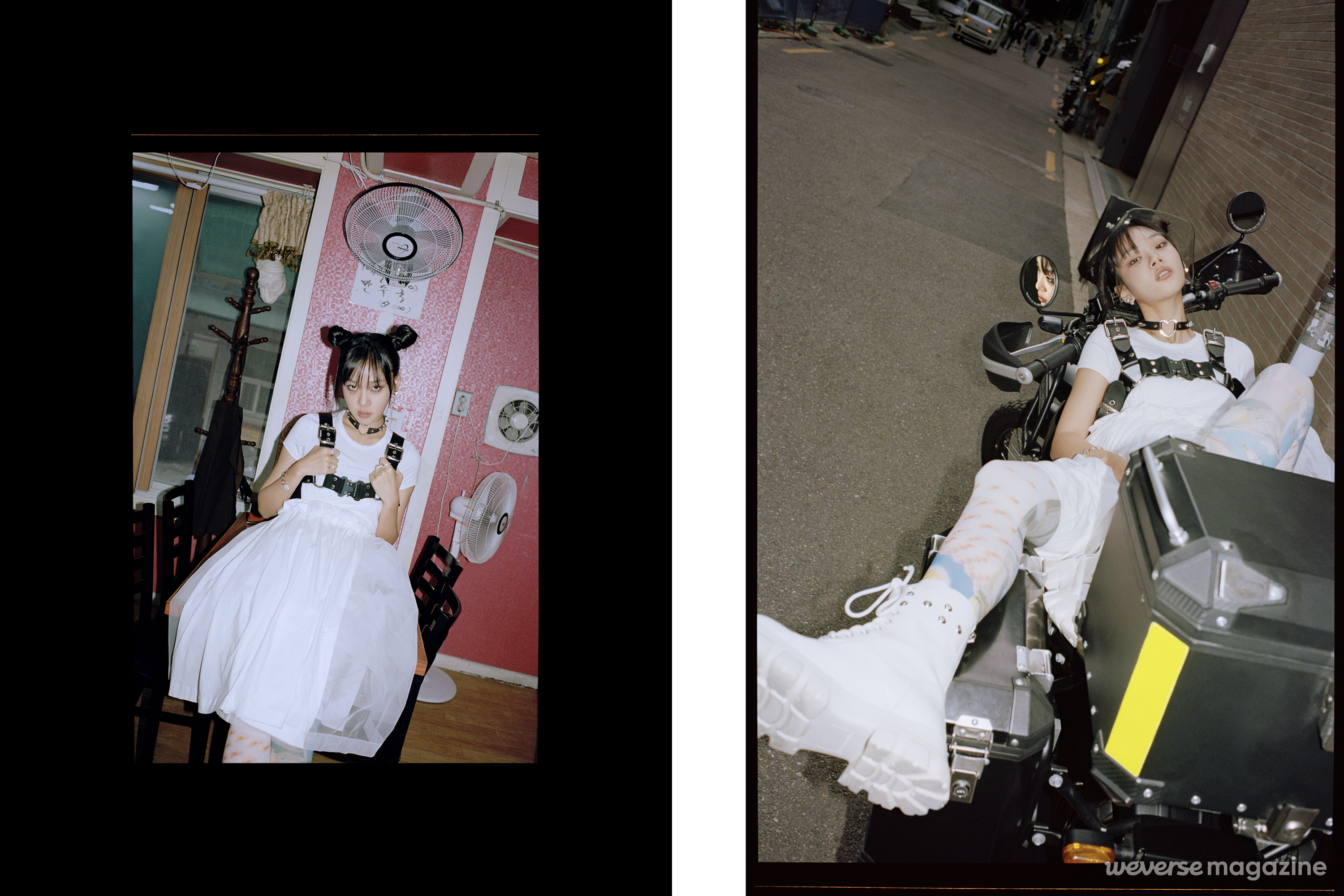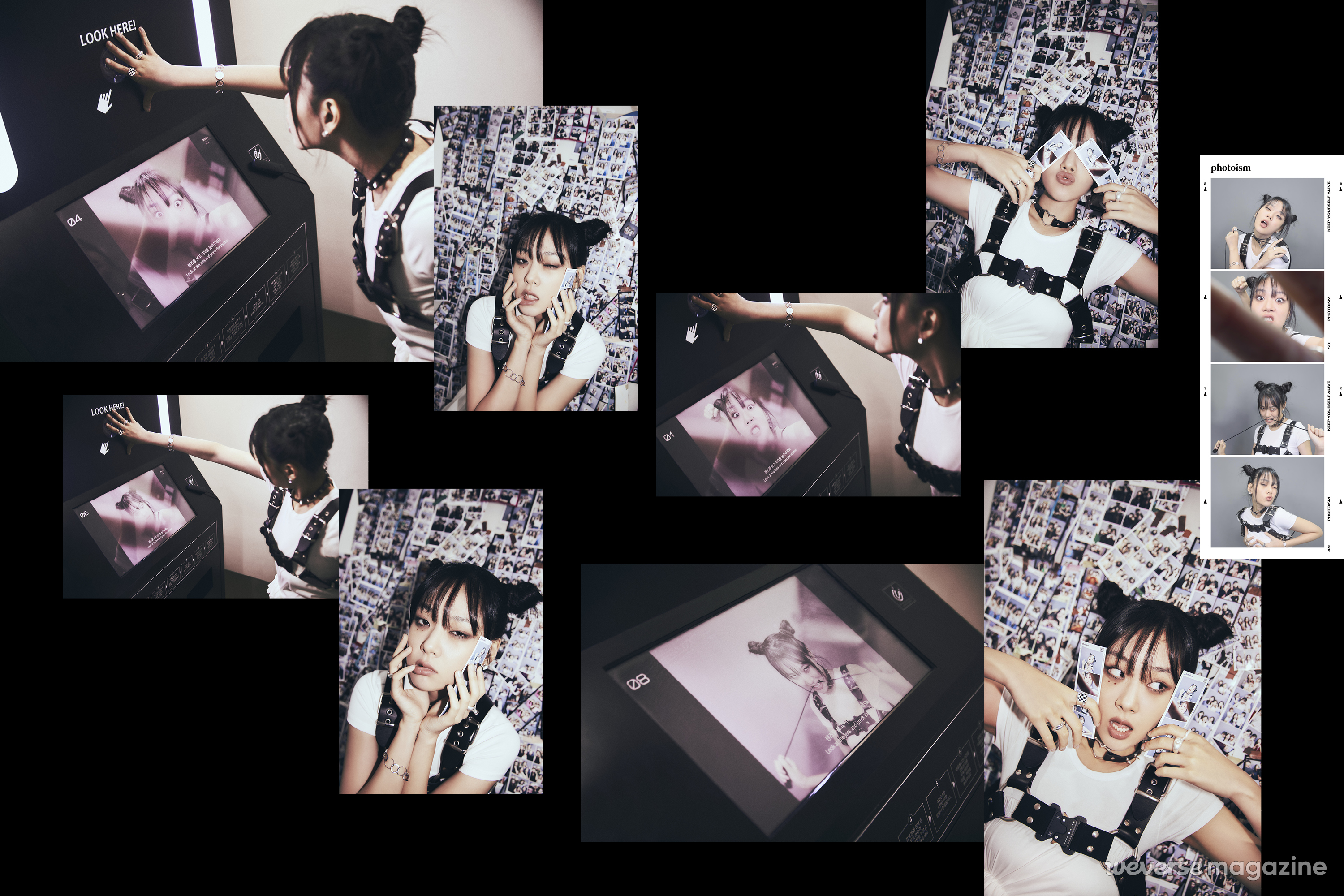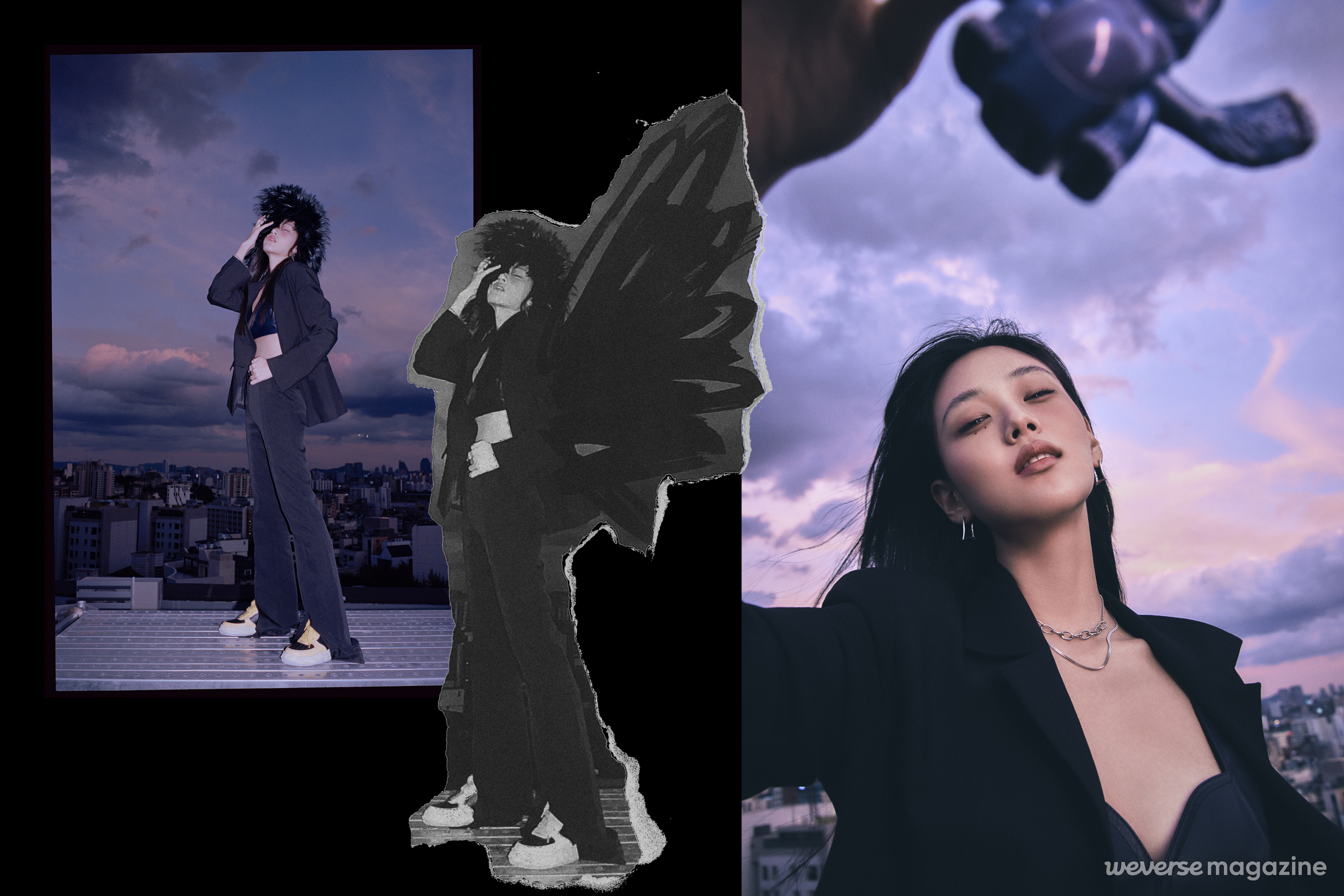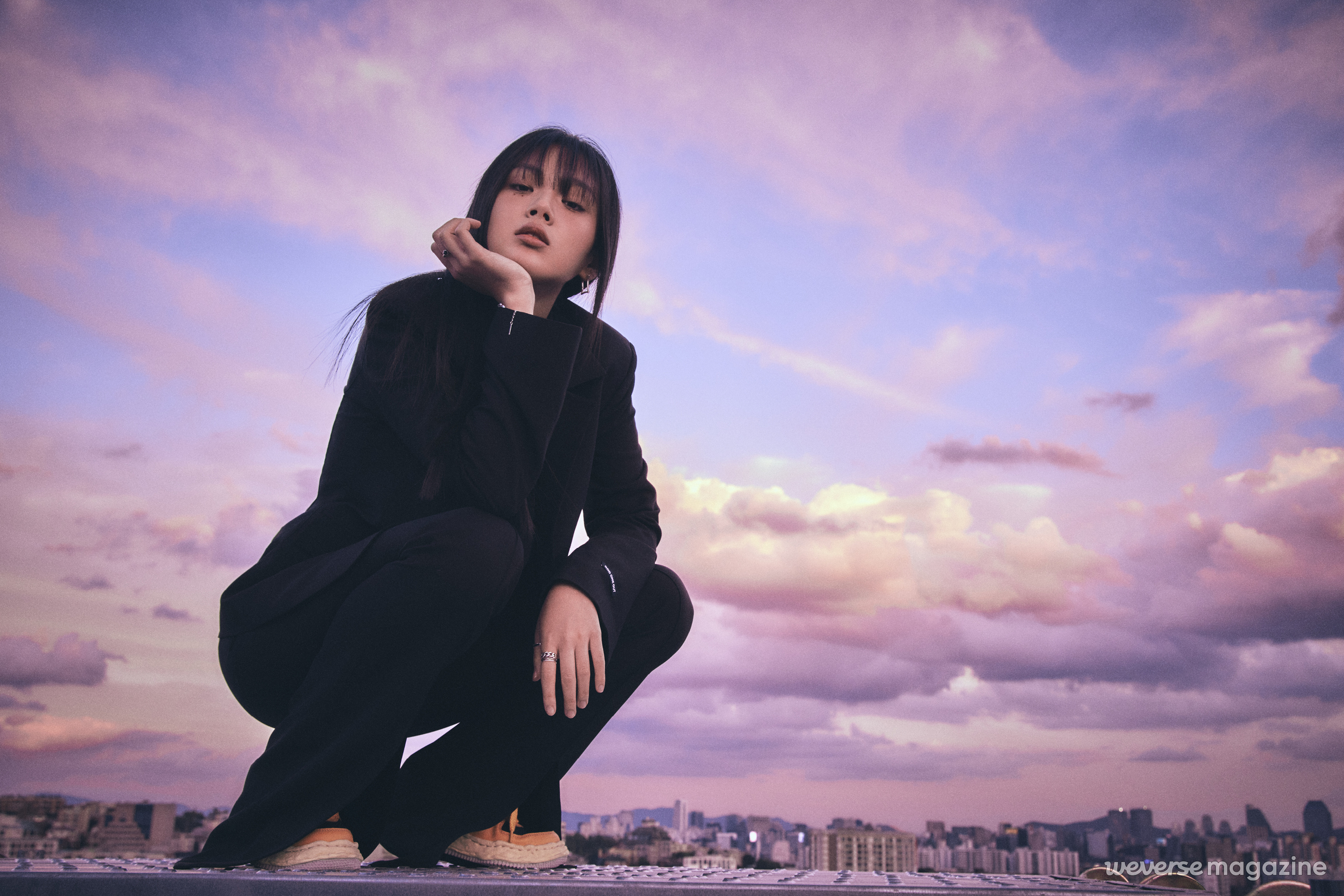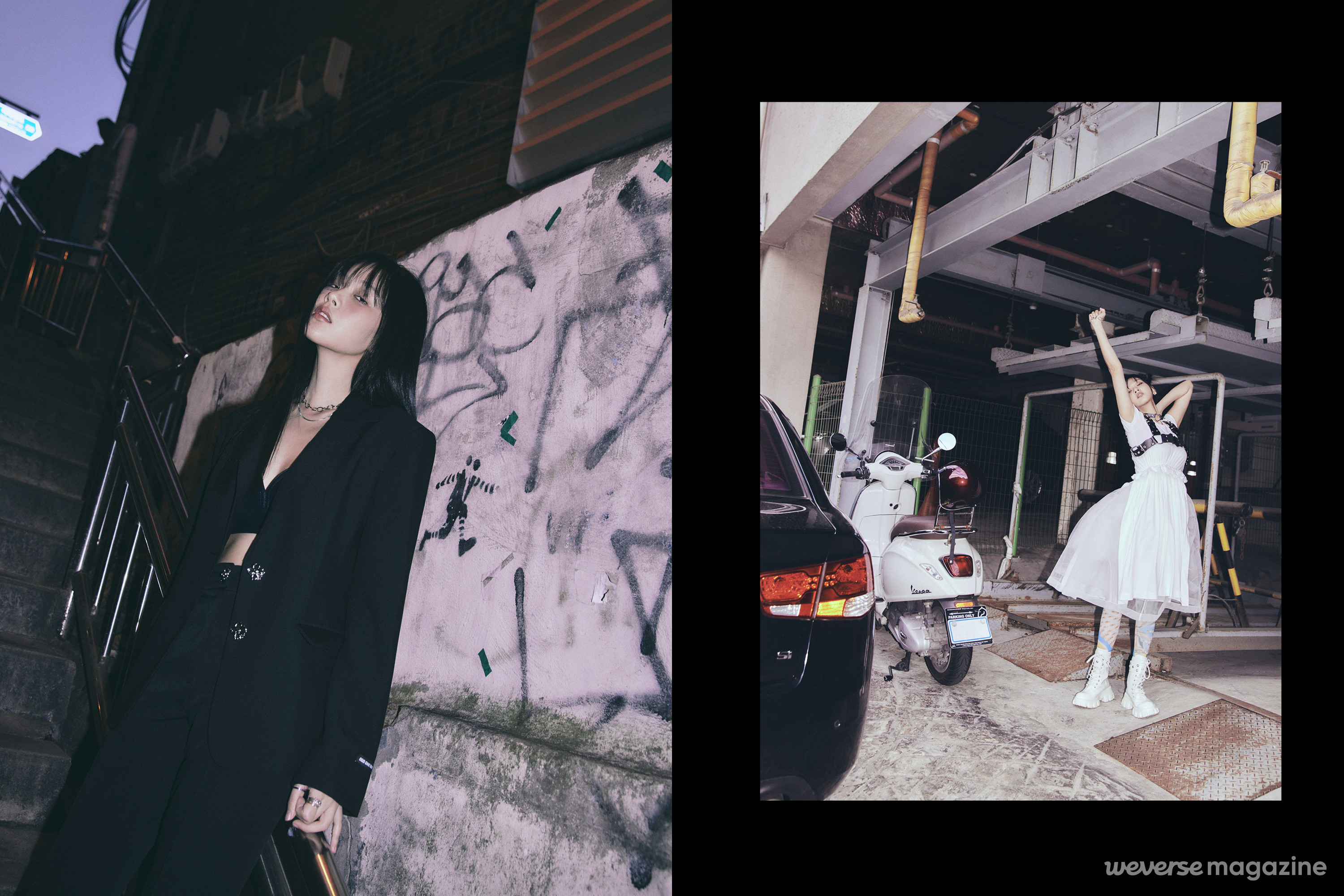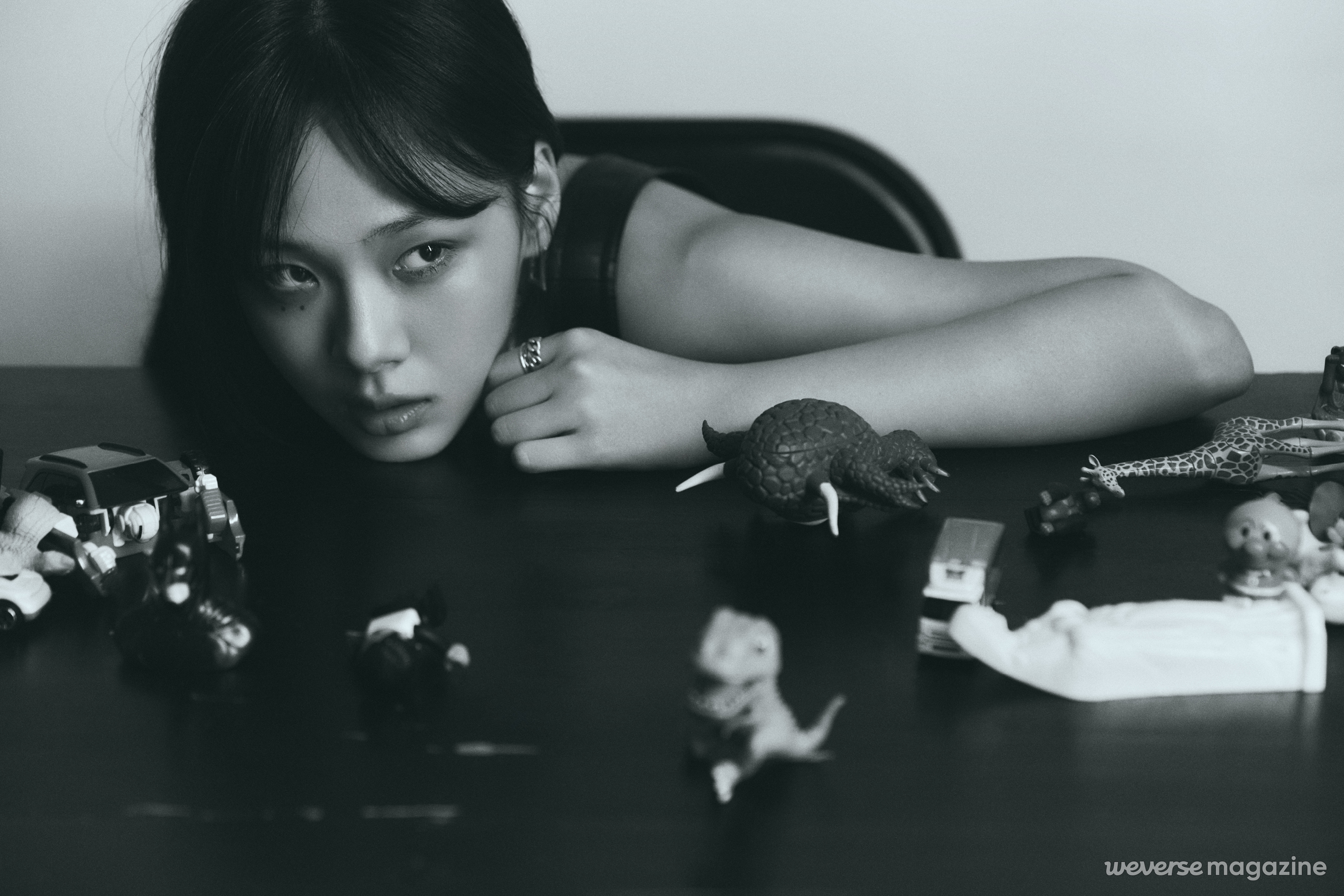
So the BIBI we see is the BIBI we want to see. What are you like in everyday life?
BIBI: The problem is that, even when I’m alone, I still put on the persona I think is me, but it’s not completely me. Even when I write in my diary, I know nobody else is going to see it, but I still try to write well in an act of showmanship, and I feel disappointed whenever what I wrote isn’t interesting enough. And I’ll talk to myself when I’m alone, like, “Who’s hungry?—Me!” I was worried I would become useless if I didn’t do anything and that I would look in the mirror and see nothing there. It’s a difficult process, but I’m trying to find myself again.
Who do you think BIBI is?
BIBI: Everyone thinks BIBI is me, but BIBI’s a kind of brand, and I’m just the owner. I just make the music; the label takes care of stuff like marketing. BIBI is ultimately a blank canvas that I as Kim Hyeongseo can paint anything I want on. And then I present it to people as BIBI.
Then what about Kim Hyeongseo?
BIBI: She’s living a colorful personal life. Maybe she’s bad, maybe she’s good, but she’s never going to reveal it to anyone. (laughs)
Unauthorized reproduction and distribution prohibited.
